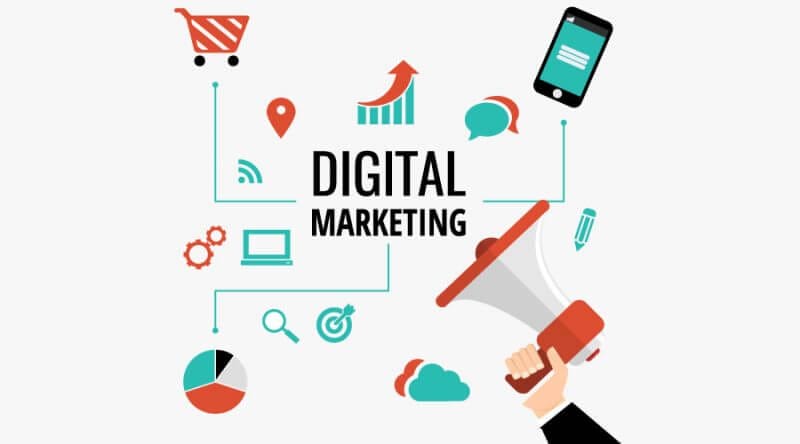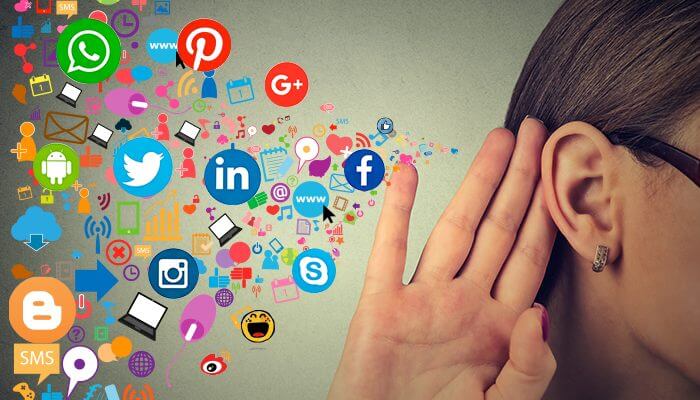
If you’ve never had a social media issue to respond to, count yourself lucky.
Author
But the reality? Businesses large and small need a strategy for the crisis.
Since meltdowns, pile-ons and scandals on social media are no longer only reserved for the largest businesses.
Latest figures on interaction show just how easily social media works for modern businesses. When you’re still dealing with a torrent of @mentions, notifications and alerts it’s obvious how errors can be made and out of control spiraling.
Meanwhile, the current coronavirus pandemic underlines the need for a roadmap for handling social media crises. Brands have to be more aware of consumer emotions than ever before, and how they handle themselves through difficult times.
This guide breaks down the basics of coping with a social media issue, and tips on avoiding future issues.
What constitutes a social media “crisis?”
Yeah, still question.
In short, any social media behavior that potentially damages the credibility or ability of your company to do business represents a crisis.
Keep in mind that a “crisis” is much more than a single negative remark or concern about the consumer. Crisis signs could be anything from a flurry of critical remarks to an outright boycott of your goods.
Remember also that as a marketer not all situations are completely under your power. No matter how cautious your company is with its marketing, they will happen.
How could it be? Let’s look below for some cases of social media crisis.
Insensible, out – of-touch or tone-deaf comments
Maybe the most common – and preventable – type of crisis that comes from saying offensive or disrespectful stuff.
We often see these snafus from celebrities. Chalk it up to a lack of self-awareness or not getting a second opinion to say “Hey, maybe you shouldn’t share this.” Consider the latest backlash from the disrespectful remarks Vanessa Hudgens made about the COVID-19 crisis on Instagram Live. Notice that with over 38 million followers, Hudgens is among the most-followed celebrities on Instagram.
It was both out – of-touch and reckless, to say the least, to doubt the efficacy of shelter-in-place orders and to remark playfully “Wow, people are going to die.” Hudgens has since walked back her remarks and “apologized,” but there was definitely harm to her reputation based on the replies.
Judgment mistakes are not only limited to celebrities. For example, Dutch airline KLM’s Indian branch had to apologize for a now-deleted inflammatory tweet about the fatality levels on aircraft based on where passengers are seated while on a flight.
The idea that the rear seats on a plane are technically the safest on their own might not be offensive. To pose death rates as a “fun reality” with a hashtag # TriviaTuesday is certainly in poor taste.
Product fails and customer criticism
Online social media and group administrators act as the kind of mouthpiece for their respective brands.
And if a product you’re putting out isn’t delivering or resulting in negative news, you’ll be getting the brunt of the criticism.
As illustrated by Refinery29, in 2022, a number of beauty influencers and YouTubers took social media to speak out against DevaCurl products after marketing them to followers and fans beforehand.
In addition, a related Facebook group of over 59,000 members reported hair injury and loss from using DevaCurl.
In addition, a related Facebook group of over 59,000 members reported hair injury and loss from using DevaCurl.
This debate highlights the big picture effect of handling the social media crisis. For example, Google’s front-page results for “DevaCurl” include coverage of the controversy and the video mentioned above.
The complaints against their goods have been publicly discussed by DevaCurl but the exposure of the topic does not necessarily vanish
Employee errors and bad behavior gone viral.
As noted earlier, a crisis often arises because of something completely outside the control of a social manager or marketing team.
For example, in 2021, Cynet Systems had to remove their work-centric Twitter account fully and apologize for a job posting on LinkedIn seeking a candidate “preferably Caucasian.” Regardless of who was responsible for the listing itself, the company apologised for the mistake but was pulled onto Twitter understandably.
How to respond to a social media crisis
Listen: We don’t try to make you freak out or scare the marketing team.
Today, companies need to be cautious. It pays to be prepared despite the constantly “on” nature of today’s industries, and the volatile nature of life itself.
Now that we know what common crises there are, let’s talk about what it takes to respond to one when it happens.
React quickly and swiftly
When it comes to social media questions and complaints, a response time of 12 hours is considered the norm.
But handling the social media crisis means reacting as quickly as possible. The faster you respond and quench some kind of controversy, the better. The situation depends on whether that means deleting a post or issuing an apology.
Either way, it all begins with keeping a close eye on your messages and @mentions to avoid the creation of a negative feedback loop.
Avoid automatic posts and get your account under control
Another smart move is, at least temporarily, stopping the automatic posts during a crisis.
For example, restaurants and locations clearly should not be advertising sit-down meals and parties in areas with shelter-in-place orders. In a crisis, these posts sound out of place and dismissive as people concentrate on their health over purchasing.
When you control your social media in Sprout, you can do so in a single click by hitting the proverbial pause button. The ability to pull this kind of emergency trigger is particularly helpful when you are managing several clients or accounts.
Assess and apologize if necessary
If you are in the process of handling social media crisis, it is only rational to want to get things “back to normal” as soon as possible.
But if there’s one part of a crisis you’re not expected to hurry through, it’s an apology.
In reality, a half-hearted apology in a situation where your customers have been really hurt will actually do more harm.
What makes a “healthy” public apology is up for discussion, but Lady Gaga’s example below is commonly seen as a solid one. A long-form, sincere response to your fans is much more meaningful than the “Sorry you have been offended” 140-character equivalent.
Author
-
Support staff at Galaxy Marketing for everything social related
How to Embed a Video in PowerPoint
September 9, 2023
Meta Description: Want your PowerPoint Presentation to stand apart? Read on to understand why you should embed YouTube videos to your presentations and how you can do so.
0 Comments8 Minutes
5 Tips to Use Social Media Effectively to Increase Traffic on Affiliate Websites
September 3, 2023
Learn how to use social media with these five tips to grow the popularity of your affiliate website and market like never before.
0 Comments8 Minutes
How to Perfect Social Listening Skills for Increased Product Sales
June 19, 2023
According to Brandwatch, 96% of the people discussing brands online don’t follow their profiles, so marketers are likely to miss out on relevant posts. If brands are to create a strong online presence, let alone increase product sales, they need to engage followers more proactively.
0 Comments17 Minutes
Has Crypto Bottomed? Learn What Analysts Say Now!
StickyCrypto
February 22, 2023
Cryptocurrency is a digital asset used as a medium of exchange. Factors influencing its price include supply & demand, news events, speculation, technical & fundamental analysis. Is crypto at its bottom? Analyze charts & underlying economic factors to make informed decisions on whether now is a good time to invest.
0 Comments9 Minutes
Is Crypto the Future? Unlock the Possibilities of Tomorrow Today!
StickyCrypto
February 22, 2023
Cryptocurrency is a digital currency that offers high security, low fees and fast transactions. NAN is a type of cryptocurrency with advantages such as no fees, instant transaction speed and smart contracts support. Discover why crypto may be the future of finance!
0 Comments8 Minutes
What is Bayc NFT? Unlock the Possibilities of Non-Fungible Tokens!
StickyNFT
February 22, 2023
Experience secure & efficient trading of digital assets with Bayc NFT! Enjoy access to liquid markets, a wide range of digital assets, low fees & more. Get in touch with us for social media marketing services today!
0 Comments10 Minutes



















